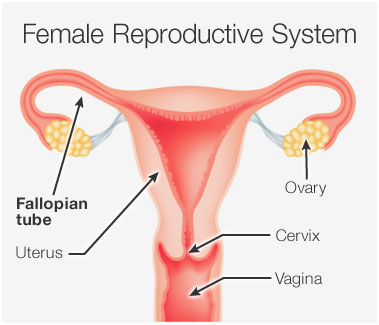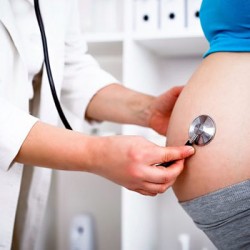What is an ectopic pregnancy?
An ectopic pregnancy occurs when a fertilised egg implants somewhere other than the womb (uterus), usually in a fallopian tube – so it is sometimes called a tubal pregnancy.
The fertilised egg cannot develop properly outside the womb and its growth may damage the tube and surrounding structures. This may lead to loss of the pregnancy or a medical emergency for the pregnant woman.
An ectopic pregnancy is usually discovered between the 5th and 14th week of pregnancy.

How common is ectopic pregnancy?
An ectopic pregnancy is estimated to occur in up to 1 out of every 90 pregnancies.
What are the symptoms of an ectopic pregnancy?
Common symptoms include:
- Vaginal bleeding
- Nausea and vomiting
- Lower abdominal pain, often on one side of the body
- Sharp abdominal cramps
- Diarrhea or vomiting
- Dizziness or weakness
- Pain in the shoulder tip, neck, or rectum
If the fallopian tube ruptures, the pain, and bleeding could be severe enough to cause fainting and occasionally may even be rapidly fatal.
If you experience any of the symptoms listed above during pregnancy, seek medical advice straight away or go to accident and emergency. Getting to the hospital quickly is important to reduce the risk of hemorrhaging (severe bleeding) and to help preserve your fertility.
What causes an ectopic pregnancy?
If one of the fallopian tubes is damaged, it may not allow the fertilised egg to pass to the uterus causing the egg to implant in the fallopian tube or elsewhere.
How is an ectopic pregnancy diagnosed?
As many of the symptoms of ectopic pregnancy resemble those of other conditions, it can be difficult to diagnose. Tests may include a urine pregnancy test, pelvic examination, blood tests and an ultrasound scan to view the condition of the uterus and fallopian tubes.
